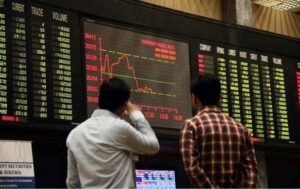Diwali Festival (the festival of light) celebrations begun with religious fervor, traditional zeal and enthusiasm across northern Sindh.
People of the Sukkur and its adjoining areas also illuminated their worship places on the eve of Diwali Festival. All celebrations would end at Sunday late night, the people visited friends, relatives and exchanged sweets and gifts. Special ceremonies were held by local Hindu community in connection with the festival.
The Hindu leaders cut the Diwali cake and distributed gifts and sweets. The Pandits and devotees held prayers in different temples for integrity, solidarity and security of the Pakistan.
Meanwhile, the Sukkur district administration has made tight security arrangements in and around the Hindu temples to avert any untoward incident.
Diwali is the biggest festival of the Hindus, often referred to as the ‘Festival of Lights’. The festival, which also marks the ahead of the New Year for Hindus, celebrates the return of Lord Ram along with his wife, Sita, and brother, Lakshman, from a 14-year-old exile in Ayodhya, said Pandit of Sadhu Bela Temple Rajesh.
The three daylong celebrations are preceded by poojas inside homes, known as Dhanteras. Homes are lit up with earthen lamps while rangoli (dyed rice) is used to craft patterns on the floor to welcome Lord Ram and his wife, Sita. “The concept is such that when Lord Ram and Sita visit our houses, they like the colours and designs,” Ms Neha told.
According to her, some people make the Rangoli on their own, while others use stencils to perfect the design. While using dyed rice is a traditional practice, others may go for more innovation, she added.

Afsheen Gohar believes in the power of clear, straightforward writing. Her blog posts tackle everyday topics with relatable insights and easy-to-follow advice. With a conversational style, she makes complex subjects feel understandable. She’s dedicated to sharing knowledge and empowering readers to take action. Find her latest posts on trending in social.











